Space photos, articles and other space related things.
Don't wanna be here? Send us removal request.
Text
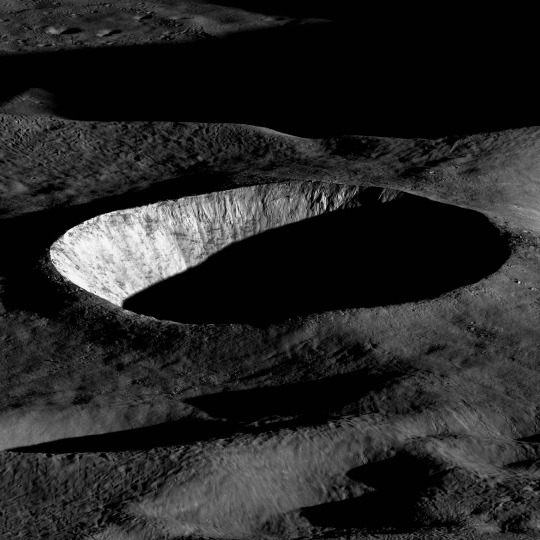
Early morning Sun illuminates the steep western wall of an unnamed 10-kilometer diameter crater on the Moon. Imaged by the LRO.
45 notes
·
View notes
Text


Images of active space stations made by Maxar's WorldView Legion satellites
67 notes
·
View notes
Text
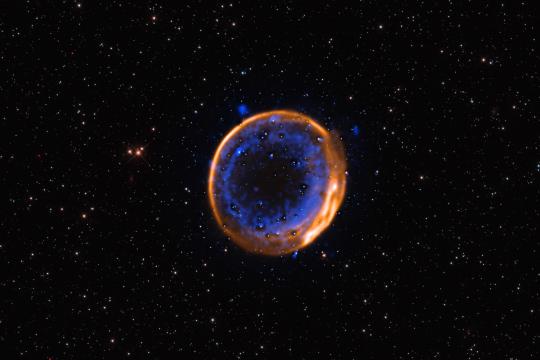
ESO’s Very Large Telescope (VLT) image of the supernova remnant SNR 0509-67.5, providing the first photographic evidence of a double-detonation supernova
156 notes
·
View notes
Text
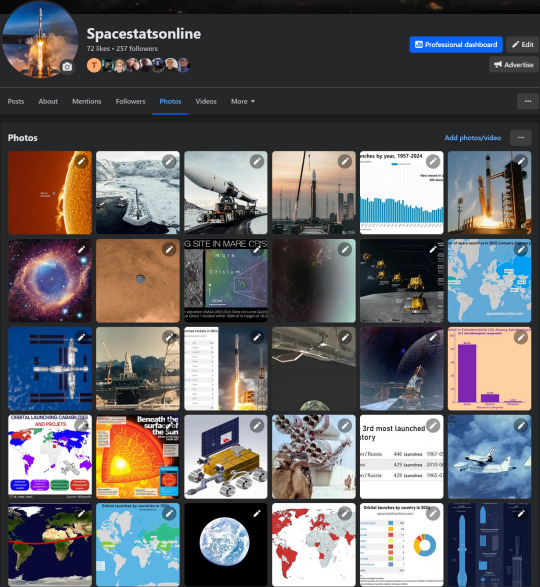
Follow SpaceStatsOnline on facebook for more content
7 notes
·
View notes
Text
Orbital launch stats for 2025 H1
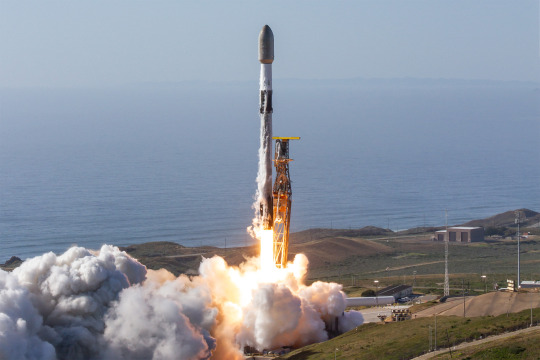
Total number orbital launches: 146
Success - 142, Failure - 4
By country: US - 96, China - 36, Russia - 7, others - 7
Most launched rockets: Falcon 9 (US) - 81, Electron (US/New Zealand) - 10, CZ-3B (China) - 9
Most used launch sites: Cape Canaveral/KSC (US) - 57, Vandenberg (US) - 29, Jiuquan (China) - 14
Details: https://spacestatsonline.com/launches/year/2025
29 notes
·
View notes
Text
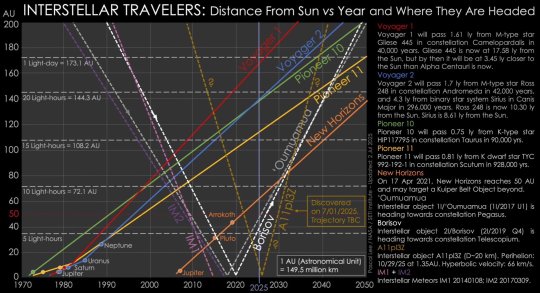
A new interstellar comet approaching the inner solar system. The object known as 3I/ATLAS is only the third confirmed object from beyond our solar system.
Chart with interstellar objects in and around our solar system.
(chart by pascalleetweets/twitter)
54 notes
·
View notes
Text
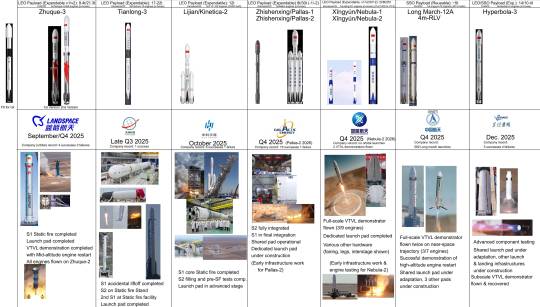

Status of China's reusable rocket programs
(by u/burgerburgertaco)
26 notes
·
View notes
Text
Northrop Grumman BOLE SRB nozzle failure during a static fire test
(by Jack Beyer/twitter)
143 notes
·
View notes
Text

This new image shows the Andromeda Galaxy in 5 different types of light — X-ray, UV, optical, infrared, and radio. Andromeda, also known as Messier 31 (M31), is the closest spiral galaxy to the Milky Way at a distance of about 2.5 million light-years.
134 notes
·
View notes
Text

The first astronauts from India, Poland and Hungary to stay aboard the space station were launched today.
114 notes
·
View notes
Text

Solar Orbiter's view of the Sun's south pole
Photograph of the bottom half of the Sun, with a highlighted square region around the Sun's south pole. Taken in ultraviolet light, the image shows the hot gas in the Sun's outer atmosphere, the corona, glowing yellow as it extends outwards in threads and loops from the Sun.
37 notes
·
View notes
Text
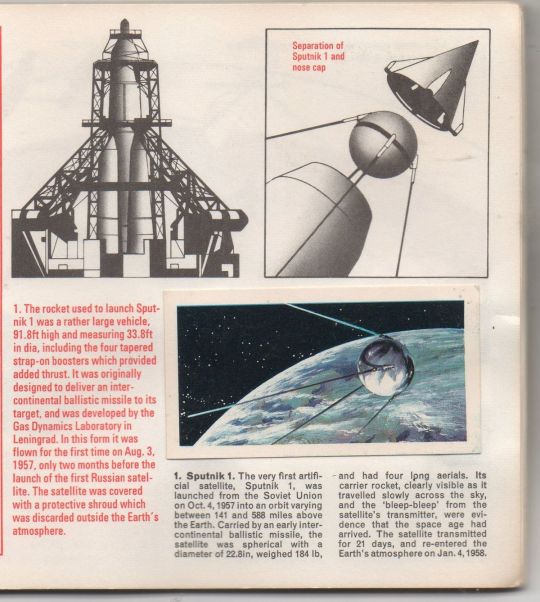
Sputnik 1; first artificial satellite, 4 October, 1957. (From 'The Race into Space' Brooke Bond Tea Cards)
24 notes
·
View notes
Text

Manned spacecrafts of the 1960s.
87 notes
·
View notes
Text
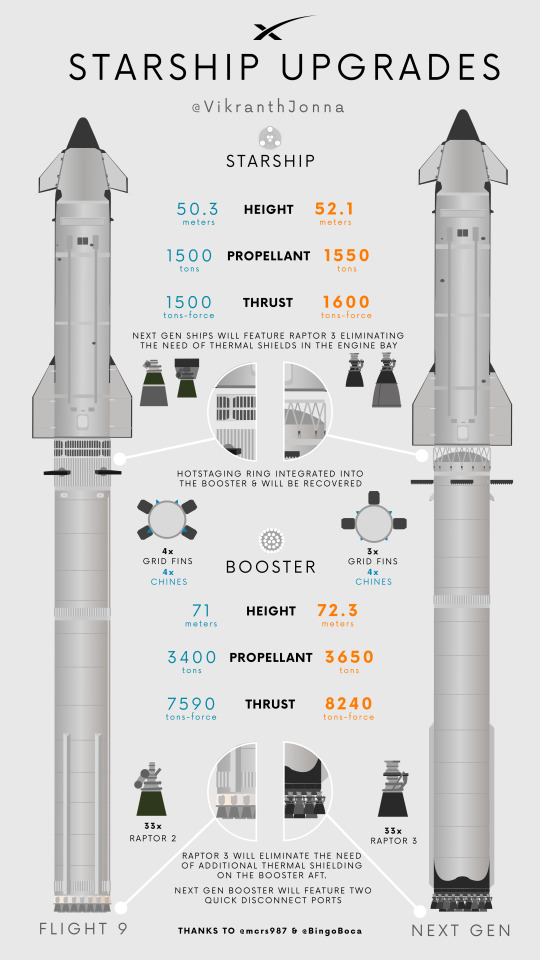
Starship upgrades presented by Elon Musk in his latest program update
(by VikranthJonna/x)
102 notes
·
View notes
Text

The large barred spiral galaxy NGC 6872 is interacting with a smaller galaxy to its upper left in this composite image built from Hubble Space Telescope and Chandra X-ray Observatory data.
The smaller galaxy has likely stripped gas from NGC 6872, which feeds the supermassive black hole in its center. The X-ray data from Chandra can be seen in purple, while the visible data from Hubble is red, green, and blue.
Credit: X-ray: NASA/CXC/SAO; Visible: NASA/ESA/STScI; Image Processing: NASA/CXC/SAO/J. Schmidt, L. Frattare, and J. Major.
249 notes
·
View notes
Text

A km tall cliff on comet 67P/Churyumov-Gerasimenko. Photo taken by ESA's Rosetta mission in 2014.
177 notes
·
View notes